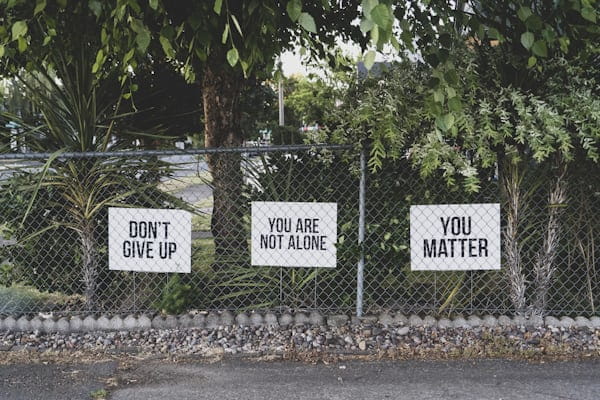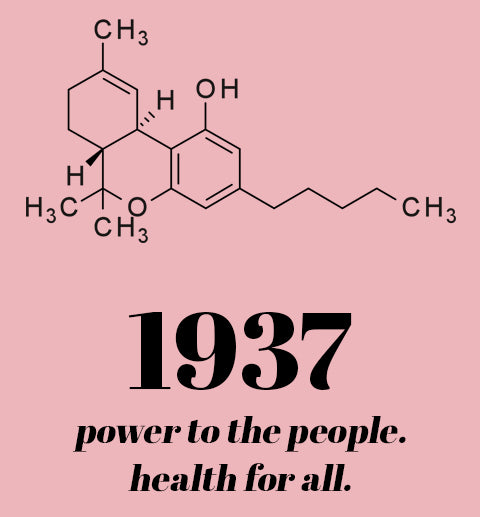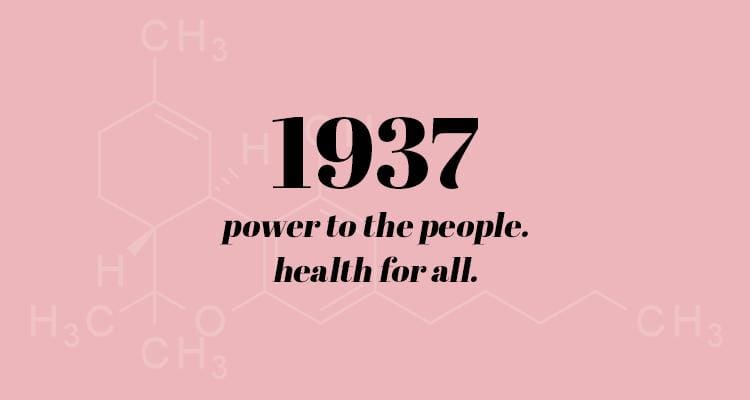Can CBD Help People Taper Off Benzos?

Benzos, or benzodiazepines, are a group of prescription sedatives meant to help those with anxiety, insomnia, and sometimes seizure disorders. They’re one of the most widely prescribed drugs and are designed for short-term use. However, the risk of becoming dependent on them is incredibly high. Even when taken under a physician's care and with carefully prescribed dosages, addiction is still a possibility. Luckily, CBD (cannabidiol) may offer a lifeline to those wishing to taper off of benzos and manage withdrawal symptoms.
What are “Benzos?”
Benzodiazepines are prescribed to address several different issues. Someone experiencing mild to severe anxiety, panic attacks, insomnia, epilepsy, or even someone withdrawing from alcohol addiction may be prescribed a benzodiazepine. Common benzos include Xanax, Ativan, Valium, Klonopin, and more--not to mention the many generic versions of those prescriptions.
They work by increasing the effects of the neurotransmitter GABA (gamma-Aminobutyric acid). The job of that particular neurotransmitter is to inhibit certain brain signals and decrease nervous system activity. GABA reduces mental and physical stress, helps us sleep, and plays an important role when it comes to muscle tone. So someone taking a benzodiazepine will experience sedation, reduced anxiety, and muscle relaxation.
When used short-term and with careful monitoring by a healthcare provider, benzos can be a tool to help people develop coping mechanisms for anxiety or to normalize sleep patterns. But these drugs are being prescribed more often and for longer amounts of time. From 1996 and 2013, benzo prescriptions rose a whopping sixty-seven percent.
What complicates the matter even more, and what makes addiction so common, is that as time goes on the drugs will become less effective. The brain adjusts to the drugs which means someone will end up needing higher and higher dosages to feel the same effects.
Side-Effects of Benzodiazepines
Even when taken exactly as prescribed, there are side-effects. Some common side-effects of benzodiazepines include:
- Grogginess
- Confusion
- Drowsiness
- Dizziness
- Impaired coordination
- Feelings of depression
- Trembling
- Headache
As someone’s regular use evolves into abuse, side-effects can worsen during use or just after the effects have subsided. Someone going through this may experience:
- Fatigue
- Forgetfulness
- Irritability
- Mental confusion
- Anxiety
- Blurred vision
- Headaches
Long-term use of benzodiazepines can induce some of the following more severe effects:
- Disinhibition
- Drowsiness
- Impaired concentration and memory
- Ataxia
- Loss of coordination
- Increased reaction time
- Dementia
- Sexual dysfunction
- Amnesia
- Depression
- Permanent cognitive defects
- Muscle stiffness
Benzodiazepine Withdrawals
Because the brain adapts to the drugs, when someone stops taking them, the brain has a hard time coping. This can lead to uncomfortable, and often painful, withdrawal experiences. American Addiction Centers even says, “About 10 percent of people who abuse benzos still feel withdrawal symptoms years after they have stopped taking the drugs.”
This is one of the reasons why it’s so important to consult with a medical professional before stopping. Often doctors will taper off the dosage to avoid intense withdrawal symptoms. Other times they’ll switch patients to a longer-acting equivalent benzodiazepine so that they can take it less often. These measures are necessary though, because of the changes that the brain experiences as a result of benzos--specifically, there’s a massive imbalance of neurotransmitters.
We know that GABA helps us stay calm, regulates sleep, and generally helps us relax. Dopamine, another neurotransmitter, plays a big role in how we experience pleasure and happiness. But even more than that it helps us learn, get motivated, stay focused, regulates mood, and affect the way we process pain. Benzos boost GABA and give us a rush of dopamine. However, as our brains get used to the benzos they lower the natural production of both GABA and dopamine. That’s why so many people experience anxiety and depression when trying to get off of benzos.
Getting off of these medications can be physically and psychologically painful. Withdrawals often occur in three main phases: early withdrawal, acute withdrawal, and protracted withdrawal.
Early Withdrawal can begin as soon as a few hours or as late as a few days of stopping benzos. Anxiety and insomnia may return as the brain adjusts to functioning without the drugs. This phase can last for several days.
Acute Withdrawal usually makes up the majority of the withdrawal process. Symptoms can vary but may include:
- Weight Loss due to decreased appetite
- Twitching
- Drug cravings
- Agitation
- Mood swings
- Clouded thinking
- Trouble concentrating
- Short-term memory impairment
- Hallucinations
- Seizures
- Diarrhea
- Blurred vision
- Nausea
- Vomiting
- Insomnia
- Muscle spasms or tension
- Anxiety
- Panic
Having a support system during this phase is paramount because of the increased risk of suicidal thoughts and actions. Therapy and support groups can help people cope with some of these symptoms, but it’s still important to work with a healthcare professional during this phase as it can last from two weeks to several months.
Protracted Withdrawal symptoms don’t happen to everyone, but according to research published by ABC News, around ten percent of benzo users can experience symptoms that last for several months or even years after they stop. Symptoms can appear randomly, without warning and can include tingling in the arms and legs, difficult mood swings, depression, anxiety, insomnia, and muscle twitches.
Ultimately, there isn’t a specific time frame that withdrawal symptoms adhere to. Everyone is different and responds to benzodiazepines differently. There are so many variables that can affect this process--from age, duration of use, dosage, and any underlying physical or psychological issues.
CBD, however, may provide a lifeline for people who want to reduce their benzo use, taper off, or help manage withdrawal symptoms.

How CBD May Help People Taper Off Benzos
CBD (cannabidiol) is a non-psychoactive cannabinoid harvested from the industrial hemp plant. The reason why CBD has such massive therapeutic potential is because of the way it interacts with our bodies.
Mammals all have an ECS (endocannabinoid system) which acts as a series of checks and balances for various other systems in the body. When a system gets out of balance, the ECS will use its own naturally occurring endocannabinoids to help restore balance. There’s still a lot of research being done, but it’s thought that the ECS plays an important role in the immune system, endocrine system, nervous system, and many more.
Because certain cannabinoids, like CBD, mimic the structure of the natural endocannabinoids, essentially they’re able to give the ECS a power boost. This is particularly helpful for people who’s neurotransmitters have become unbalanced due to benzodiazepine use. Specifically, this means that GABA and Dopamine levels have plummeted.
We’ve already covered how truly terrible withdrawals can be, but how can CBD help?
CBD can help in several different ways:
CBD May Boost GABA Production
According to one 2011 study, when GABA levels get too low the ECS may have a backup system in place designed to boost GABA levels. On certain GABA receptors, there are modulatory sites for an endocannabinoid called 2-AG. CBD may help the ECS be more effective at the task of re-balancing GABA levels.
CBD May Be an Allosteric Modulator
CBD may have the potential to enhance or inhibit the way that certain neuron receptors transmit signals. It does that by changing the shape of the receptor. Ultimately, this change in receptor shape makes GABA more effective. So, the GABA that someone already has (even if their levels are low) will be able to do its job better.
CBD May Help Underlying Anxiety Issues That Led to Benzo Use
For people who are thinking about reducing or stopping benzo use completely, one of their biggest fears is that the anxiety they were treating will come right back. Unfortunately, that’s often the case. Unbalanced neurotransmitters can lead to a variety of mental health issues, anxiety just being one of them. A study published by the Journal of Psychopharmacology, however, found that when patients experiencing social anxiety disorders used CBD oil, they had significantly reduced anxiety.
CBD May Help Regulate Sleep Patterns
Even if someone wasn’t experiencing insomnia before being prescribed benzos, sleeplessness and insomnia are common withdrawal symptoms. Luckily, one of the systems that the ECS helps to balance is the Sleep/Wake cycle, so CBD can boost that balancing power. One study even examined whether or not CBD could help improve sleep and found that 79.2 percent of the patients had less anxiety and 66.7 percent slept better.
CBD Can Help with Muscle Relaxation
Leaving benzodiazepines behind isn’t just psychologically painful, it can be physically painful too. For some, it’s just aching muscles, but others may experience painful muscle spasms. Luckily, CBD can help in two ways. First, CBD can relax muscles because it can reduce inflammation and, secondly, it can mitigate our natural pain response. For maximum pain relief, oils and tinctures are recommended, but topicals can also offer relief if the pain is localized.

Disclaimer
We are not doctors and would never recommend that anyone deviate from their doctor's orders without consulting with them first. Benzodiazepines are incredibly powerful and quitting them cold turkey can be dangerous for many reasons. If you believe it’s time to start living benzo free, then consult with a healthcare professional before making any changes.
If you, or anyone you know, are abusing these drugs, you are not alone and you still have options.
We believe that CBD may be a tool to help people in recovery, but joining a community that knows what you’re going through can be immensely helpful. Please reach out to a nearby Recovery Center today or join an online recovery community.
Conclusion
We’re still in the early phases of understanding all the different ways that CBD can help us. But for people who are struggling with benzodiazepine related issues, anything that can help is worth looking into. Benzos often just mask symptoms without actually addressing any underlying issues, so the moment that you stop taking them all those problems come right back. And sometimes they come back worse.
CBD may not be right for everyone, but it has already helped some people reduce or leave benzodiazepines behind. One woman who wanted to reduce her reliance on Xanax said,
“The effect was hard to describe; it wasn’t so much a particular feeling, but the absence of a feeling–the ever-present anxiety that’s just always there for me….The CBD made my body feel calm and quiet. That quiet feeling was mental too. My need to multitask and inability to concentrate on anything for longer than 5 minutes gave way to intense focus. I worried that CBD, like Xanax, would render me useless, but I’ve actually found that taking CBD helps me with work–unlike the Xanax, which I’d always have to time around bedtime, I feel comfortable taking CBD any time of the day.”
We want that feeling for everyone, but especially for those who have suffered from benzodiazepine use. If you, or someone you know, are struggling to cope with benzo use then consider whether CBD could provide relief. If you’ve managed to improve your benzo use with CBD then tell us your story in a comment below or let us know on Instagram! Your story could help inspire someone else to reach out and get help. The more we talk about these issues, the more people can live normal, benzo-free lives.

Hannah Walker is a mostly-retired University English instructor who spends her time freelance copywriting. When not doing that, she’s writing articles related to CBD, skincare, and/or media. With an MA in English-Creative Writing she’s probably working on a creative piece at this very moment. See more about Hannah’s work on her website or on Instagram.


